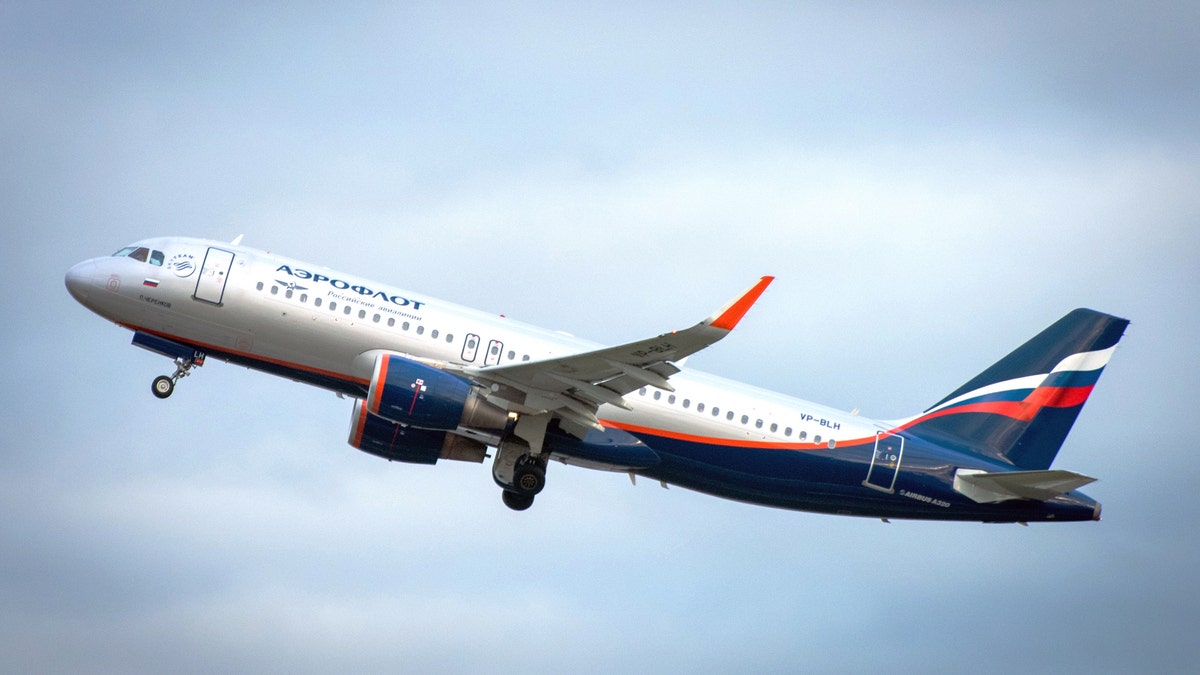DOD, United Airlines say masked passengers 'extremely unlikely' to catch COVID-19
U.S. Department of Defense and United Airlines conduct study and find the risk of exposure to coronavirus on commercial airlines is 'virtually nonexistent'; Fox News correspondent Bryan Llenas reports.
There’s first class, business class and… unmasked class.
Aeroflot, Russia’s largest airline, will reportedly offer a special seating section for passengers who refuse to wear face masks.
Tightening protocol in the fight against COVID-19, the airline announced Monday it will deny boarding to people who do not enter the plane with the PPE on. Specifically, customers must wear "a protective mask that fully covers their mouth and nose." Though face masks can be briefly removed if a person is eating, Aeroflot will not allow passengers who cannot wear masks to fly "for medical or other reasons" during this time.
However, in a contradictory twist, a spokesperson announced the next day that the carrier would create a new seating section for people who refused to wear masks during the actual flight.

"Dedicated seats are provided for passengers who refuse to use masks after the doors are closed," said Aeroflot spokeswoman Yulia Spivakova, per local reports. (iStock)
"Dedicated seats are provided for passengers who refuse to use masks after the doors are closed," said Aeroflot spokeswoman Yulia Spivakova, according to The Moscow Times.
FOLLOW US ON FACEBOOK FOR MORE FOX LIFESTYLE NEWS
Spivakova stressed that the airline still asserts authority to boot passengers who refuse to comply with health and safety guidance in general, calling it "common global practice and a necessary measure."
The Moscow Times reports that the seats for the mask-defiant passengers will be located on the right-hand side of the economy cabins, in the last two rows. Aeroflot did not immediately respond to Fox News' request for comment
CLICK HERE FOR FOX NEWS' CONTINUING CORONAVIRUS COVERAGE
To date, 2.7 million cases of coronavirus, and 48,568 deaths, have been reported in Russia, according to Johns Hopkins University.









































